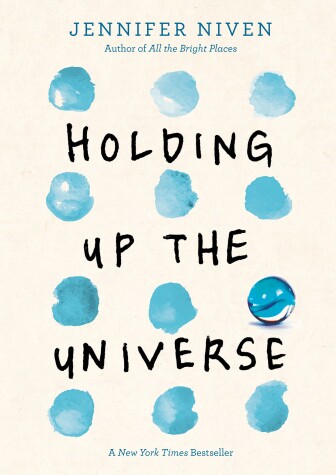Reviewed by girlinthepages on
I remember when I first read the synopsis, I was sort of shocked, as Niven was using rather a rather extreme physical condition for her protagonist (Libby, who was at one point so overweight that she had to be lifted out of her house with a crane) and it almost seemed a bit insensitive of a premise to me. How does one begin to even imagine what that sort of situation is like, especially having one's affliction gain such public notoriety? I was surprised to find that the novel didn't really focus very much on Libby's physical condition or overcoming it, rather more on the emotions behind her overeating and her integration back into a social setting with her peers. I really loved Libby as a character and I loved that she was really OK with how she looked because she was more focused on how she felt, and she was a protagonist who actively checked in with herself and partook in self-care. Whether it was when she was being bullied at school or had just spent an emotionally exhausting afternoon teaching her peers about self-love and a healthy body image, she always checked in on her emotional state, which is something that I think a lot of teenagers don't do or don't know how to do, which was a great trait to showcase in a protagonist.
I found Jack to be much less underwhelming as a POV character. His inability to recognize faces and his coping methods for navigating relationships with other people was really interesting to read about, but he was such a total follower throughout most of the book that I found it hard to like him. Libby had 100x more strength than him and had arguably been through much more, so I almost felt like it lessened the impact of her story arc to have a romantic entanglement with him. There were also a lot of interesting and diverse elements brought up within Jack's family system (gender/sexual identity, severe illness, biracial relationships) that were never fully fleshed out, rather it felt like they were included for the sake of making his family seem like they had this interesting and complex dynamic, but it was never truly expounded on. It just felt like Jack's story could have been so much more than it was.
I think Holding Up the Universe could have been a much more powerful story had it NOT been a romance. I think Jack and Libby could have found each other and been friends who provided a strong support system for each other, but I was never convinced by their attraction or chemistry. It felt like a relationship of convenience (two people who happen to be on the extremely severe end of their affliction/disorders who find each other) rather than one that formed organically. In some ways I felt it took away from Libby's wonderful character development to have her like Jack after his initial behavior towards her, as well as shifted the focus from some of her larger goals and achievements, such as her determination to break the body stereotypes for dancing, finding creative ways to empower herself and other females who are self-conscious about her body image, and her truly admirable habit for fighting her own battles (literally).
Overall: While I enjoyed reading Holding Up the Universe and I would try another novel by Niven, I felt this story could have been stronger without the romance aspect, as Libby is a protagonist who serves to inspire and teach readers about the importance of self-acceptance and emotional self-care. While Jack's character felt weak to me in comparison, I believe that was due to the foundations of an interesting and diverse background that were never truly built upon. A well written novel with some interesting elements, but I just felt like it had the potential to be so much more.This review was originally posted on Girl in the Pages
Reading updates
- Started reading
- 28 December, 2016: Finished reading
- 28 December, 2016: Reviewed
